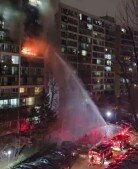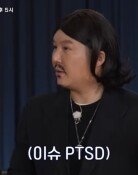Calls for sanctions on 'unreasonable assemblies' occupying roads
Calls for sanctions on 'unreasonable assemblies' occupying roads
Posted March. 27, 2024 07:41,
Updated March. 27, 2024 07:41
As large-scale urban gatherings, which were rare during the cold winter, are increasingly held in the spring and during the election season, the damage from traffic congestion and noise pollution is mounting. Particularly concerning is the rise of 'fake rallies,' where conservative and progressive groups exaggerate attendance numbers and rally durations.
A recent investigation by The Dong-A Ilbo reporting team revealed discrepancies in the reported attendance and duration of four major rallies over the past two weeks, where more than 3,000 participants were initially claimed. In each case, the actual attendance and duration deviated significantly from the reported figures. For instance, a conservative rally held on Hangang-daero in front of the North Gate of the War Memorial of Korea in Yongsan-gu, Seoul, purported to have 10,000 participants, but police estimates placed the number at 70, with organizers estimating only 200. Similarly, a progressive rally on Sejong Road in front of the Korea Press Center in Jung-gu, Seoul, claimed 5,000 participants, but police estimated 700, and organizers estimated 2,000. This discrepancy not only misrepresents public sentiment but also leads to practical inconveniences, such as empty cars occupying space for hours, which should be avoided for civic convenience.
Inflating meeting times is also a recurring issue. Despite only requiring 1 to 2 hours of preparation for the rally, including stage setup, organizers often report extended durations, such as starting at 10 a.m. for a rally scheduled to begin at 3 p.m. This unnecessarily prolongs traffic restrictions and inconveniences the public. Organizers justify this by citing uncertainties in attendance and the need for rally preparation. However, this repeated inflation of attendance figures and rally durations reflects either intentional manipulation or irresponsible behavior, disregarding the waste of police resources and public inconvenience. If the assembly size or the required time significantly differs from the reported figures, appropriate responsibility, including fines, must be imposed.
South Korea's gathering culture is notably more lenient than other developed countries. However, due to inadequate enforcement mechanisms, regulations on noise from gatherings are lax and poorly enforced. While historically, rallies and protests played a crucial role in democratization efforts against unjust power, times have evolved. There is a pressing need to balance preserving the freedom of assembly for peaceful expression of opinions and safeguarding the right to a peaceful daily life, free from excessive noise, profanity, and road occupation.






![“잠만 자면 입이 바싹바싹”…잠들기 전에 이것 체크해야 [알쓸톡]](https://dimg.donga.com/c/138/175/90/1/wps/NEWS/IMAGE/2026/02/23/133404748.3.jpg)
